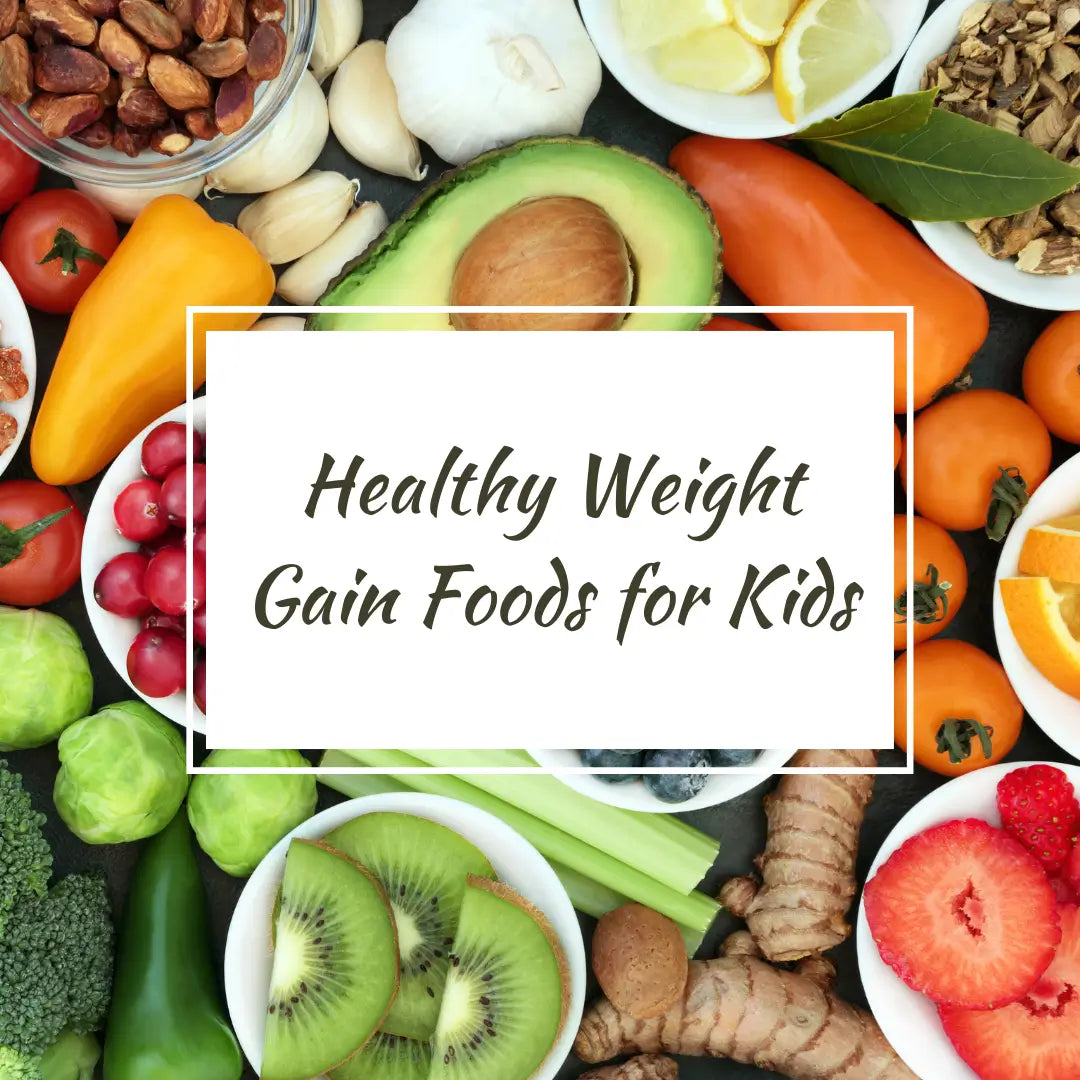Healthy Weight Gain in Kids - Comprehensive Diet Plan
Table of Contents
- Understanding Weight Gain in Children
- Core Principles of a Child Diet Plan
- Essential Nutrients for a Child Diet Plan
- Food Recommendations for Weight Gain in Children
- Sample 7-Day Meal Plan
- Challenges and Solutions in Helping Children Gain Weight
- When to Seek Medical Advice for Weight Gain
- Foods to Limit for Weight Gain in Children
Weight gain in children can be a concern for parents, especially when a child is underweight and struggling to reach developmental milestones. A carefully curated child diet plan weight gain is essential for ensuring proper nutrition, healthy growth, and overall well-being. This guide provides everything you need to create a balanced and effective child diet plan weight gain to help your child thrive in a healthy and sustainable way.
Understanding Weight Gain in Children
What is Healthy Weight Gain?
Healthy weight gain in children focuses on adding lean muscle, building strong bones, and maintaining overall health. A well-designed child diet plan weight gain should include a balance of macronutrients (proteins, fats, and carbohydrates) along with essential vitamins and minerals to achieve these goals.
Discover helpful parenting tips and advice on the SafeHugs Parenting Blog to guide you through the journey of raising happy, healthy children.
Signs Your Child May Be Underweight
-
Visible Thinness: Noticeable lack of fat or muscle mass, with bones appearing prominent.
-
Slow Growth: Falling behind on growth charts or not reaching age-appropriate height and weight milestones.
-
Low Energy Levels: Fatigue, reduced physical activity, or difficulty concentrating.
-
Poor Appetite: Consistently eating less than expected for their age.
-
Ill-Fitting Clothes: Clothing that becomes looser over time despite no change in size.
-
Frequent Illnesses: Weakened immunity leading to recurring colds or infections.
-
Delayed Development: Slower achievement of developmental milestones like walking or speaking.
-
Behavioral Changes: Increased irritability, mood swings, or withdrawal.
Wondering if your child is at a healthy weight? Use this easy BMI calculator to check and guide their growth journey!
Common Causes of Being Underweight
-
Nutritional Issues: Insufficient calorie intake, picky eating habits, or diets lacking essential nutrients can hinder weight gain, making a structured child diet plan weight gain critical.
-
Medical Conditions: Chronic illnesses or digestive disorders can reduce nutrient absorption, increasing the importance of a targeted child diet plan weight gain.
-
Genetics: Some children naturally have a thin body type due to family traits, which may not indicate a health issue.
-
Psychological Factors: Stress, anxiety, or eating disorders can suppress appetite, requiring intervention through a holistic child diet plan weight gain.
-
Environmental Factors: Poverty, neglect, or limited access to nutritious food contribute to poor growth and weight issues.
-
High Energy Needs: Highly active children or those undergoing rapid growth spurts may burn more calories than they consume.
-
Low Birth Weight or Premature Birth: Babies born prematurely or with low birth weight often take time to catch up to normal growth patterns.
When to Seek Medical Advice
If these signs persist, consult a pediatrician to evaluate the underlying causes and create a tailored plan for healthy weight gain.
Core Principles of a Child Diet Plan Weight Gain
-
Balanced Nutrition: Include all food groups – carbohydrates, proteins, healthy fats, vitamins, and minerals – for holistic growth.
-
Calorie-Dense Foods: Add nutrient-rich, high-calorie foods like avocados, nuts, seeds, and full-fat dairy to meals.
-
Frequent Meals: Serve 5-6 small, nutrient-packed meals throughout the day to increase calorie intake without overwhelming the child.
-
Protein-Rich Foods: Incorporate eggs, lean meats, fish, lentils, and dairy to support muscle and tissue development.
-
Healthy Fats: Use sources like ghee, butter, olive oil, and coconut oil for cooking to add healthy calories.
-
Whole Grains: Include energy-boosting foods like oats, quinoa, brown rice, and whole-grain bread.
-
Fruits and Vegetables: Provide a variety of fruits and vegetables for essential vitamins, minerals, and fiber.
-
Snacks and Smoothies: Offer nutritious snacks like cheese, peanut butter, or fruit smoothies made with yogurt or milk.
-
Hydration: Ensure adequate fluid intake, but limit beverages before meals to avoid suppressing appetite.
-
Encourage Healthy Eating Habits: Avoid force-feeding and create a positive mealtime environment to make eating enjoyable.
Consult a Professional
Always work with a pediatrician or dietitian to tailor the diet plan to your child’s specific needs and address any underlying health concerns.
Discover stylish, comfortable, and high-quality clothing for kids at SafeHugs, where fashion meets functionality for your little ones.
Essential Nutrients for a Child Diet Plan Weight Gain
-
Proteins:
-
Importance: Build and repair tissues, support muscle growth, and boost the immune system.
-
Sources: Eggs, lean meats, chicken, fish, dairy products, lentils, beans, tofu.
-
Healthy Fats:
-
Importance: Provide concentrated calories for energy, support brain development, and aid in nutrient absorption.
-
Sources: Avocados, olive oil, ghee, nuts, seeds, nut butters, fatty fish (like salmon).
-
Carbohydrates:
-
Importance: Provide energy for growth, physical activity, and brain function.
-
Sources: Whole grains (oats, brown rice, quinoa), starchy vegetables (potatoes, sweet potatoes), fruits, and legumes.
-
Vitamins and Minerals:
-
Importance: Essential for growth, development, and overall health. Vitamins like A, D, and E support immunity, bone health, and skin.
-
Sources: Fruits and vegetables (carrots, spinach, bananas), fortified cereals, dairy, eggs, nuts.
-
Calcium:
-
Importance: Supports bone growth and strength, essential for the development of strong teeth and bones.
-
Sources: Milk, cheese, yogurt, leafy green vegetables, fortified plant-based milks.
-
Iron:
-
Importance: Crucial for healthy red blood cells and preventing anemia.
-
Sources: Red meat, poultry, beans, spinach, fortified cereals.
-
Zinc:
-
Importance: Vital for immune function, growth, and development.
-
Sources: Meat, shellfish, beans, seeds, nuts, whole grains.
-
Fiber:
-
Importance: Supports digestive health and can help prevent constipation, which is common with a high-calorie diet.
-
Sources: Whole grains, fruits, vegetables, legumes, nuts.

Food Recommendations for Weight Gain in Children
-
High-Calorie Snacks:
-
Nuts & Nut Butters: Almonds, cashews, peanuts, peanut butter, or almond butter spread on toast or fruits.
-
Cheese: Full-fat cheese slices, cheese sticks, or cottage cheese.
-
Granola Bars: High-calorie, protein-packed bars, homemade or store-bought.
-
Trail Mix: A mix of nuts, dried fruits, and seeds for a calorie-dense snack.
-
Protein-Rich Foods:
-
Eggs: Scrambled, boiled, or in omelets. A great source of protein for muscle growth.
-
Meat & Fish: Chicken, turkey, lean beef, or fatty fish like salmon or mackerel for protein and healthy fats.
-
Dairy: Full-fat milk, yogurt, cheese, or smoothies made with milk for extra calories and protein.
-
Legumes: Beans, lentils, and chickpeas are protein-rich and can be added to soups, salads, or stews.
-
Healthy Fats:
-
Avocados: A rich source of healthy fats and calories; add to salads, sandwiches, or smoothies.
-
Olive Oil or Ghee: Add to meals like rice, pasta, or vegetables for extra calories.
-
Coconut Milk: Use in smoothies, curries, or baking for healthy fats.
-
Nut Oils: Walnut or almond oil in cooking or drizzled over dishes.
-
Carbohydrates:
-
Whole Grains: Brown rice, quinoa, oats, or whole wheat pasta for slow-releasing energy.
-
Starchy Vegetables: Sweet potatoes, regular potatoes, and corn can add significant calories.
-
Fruits: Bananas, mangoes, apples, or dried fruits like raisins or apricots for natural sugars and extra calories.
-
High-Calorie Smoothies & Shakes:
-
Blend fruits, full-fat yogurt, milk, peanut butter, and seeds into smoothies for calorie-dense drinks. You can also add protein powder if recommended by a doctor.
-
Homemade Energy Bars or Baked Goods:
-
Make homemade muffins, pancakes, or energy bars with oats, nuts, and seeds for high-calorie snacks.
-
Full-Fat Dairy:
-
Full-fat milk, yogurt, and cheese are great for adding calories and supporting growth.
-
Pasta & Rice Dishes:
-
Serve pasta with rich sauces like creamy Alfredo, or add butter and cheese to rice dishes for extra calories.
-
Protein Shakes:
-
If recommended by a pediatrician or dietitian, protein shakes can help provide extra calories and protein for muscle growth.
- Coconut Products:
-
Full-fat coconut milk or coconut oil can be added to smoothies, soups, and dishes to increase calorie intake.
Explore the blog "Healthy Snacks for Kids to Take to School" to discover how to prepare snacks that are both delicious and nutritious.
Sample 7-Day Meal Plan for Child Weight Gain

Challenges and Solutions in Helping Children Gain Weight
-
Poor Appetite - Children may have a naturally low appetite or be picky eaters, making it difficult to follow a proper child diet plan weight gain strategy.
What to do
-
Serve smaller, more frequent meals and snacks to avoid overwhelming the child.
-
Include high-calorie, nutrient-dense foods like full-fat dairy, nuts, and avocados in the child diet plan weight gain.
-
Make meals visually appealing by incorporating fun shapes or colors to entice them to eat.
-
Offer smoothies or milkshakes with fruits, nut butter, yogurt, and oats as part of the child diet plan weight gain strategy.
-
Food Refusal or Picky Eating - Some children may refuse certain foods, which can hinder their child diet plan weight gain efforts.
What to do
-
Gradually introduce new foods and try different cooking methods to make them more appealing.
-
Involve children in meal planning and preparation to increase interest in their child diet plan weight gain meals.
-
Try offering foods in a familiar format, such as making veggie-loaded pancakes or smoothies.
-
Offer a variety of textures and flavors to maintain excitement in the child diet plan weight gain approach.
-
Gastrointestinal Issues (e.g., Constipation or Indigestion) - Digestive problems like constipation can reduce appetite and affect the effectiveness of a child diet plan weight gain.
What to do
-
Include fiber-rich foods like fruits, vegetables, and whole grains to promote healthy digestion.
-
Ensure proper hydration by encouraging water and liquids like coconut water or buttermilk.
-
Add probiotic-rich foods like yogurt to support gut health as part of the child diet plan weight gain.
-
Consult a pediatrician if gastrointestinal issues persist or interfere with weight gain.
Expert Advice :
"Focus on whole, nutrient-dense foods like healthy fats, proteins, and carbs for weight gain, rather than junk food. Physical activity is also key for muscle development and boosting appetite." - Dr. John D. Smith, Pediatrician
-
Lack of Interest in Eating - Children who are more focused on play or other activities may not show interest in following a child diet plan weight gain.
What to do
-
Create a routine with regular meal times and snack intervals.
-
Minimize distractions during mealtimes to help children focus on eating.
-
Include energy-dense foods like nuts, avocados, cheese, and oils in the child diet plan weight gain.
-
Make meals more social and engaging by eating together as a family.
-
Concerns About Nutrient Balance - High-calorie foods can sometimes lead to a lack of essential nutrients in a child diet plan weight gain.
What to do
-
Focus on providing a balanced diet that includes a variety of food groups (proteins, healthy fats, carbohydrates, and vegetables).
-
Use nutrient-dense foods like nuts, seeds, and avocados in the child diet plan weight gain.
-
Include a variety of colorful fruits and vegetables to ensure that the child receives vitamins and minerals.
-
Consider consulting a pediatric dietitian to ensure nutritional needs are met while focusing on weight gain.

-
Emotional or Behavioral Factors (e.g., Stress, Low Motivation) - Emotional factors may lead to disinterest in eating, impacting a child diet plan weight gain.
What to do
-
Ensure a calm and positive mealtime environment, avoiding pressure to eat.
-
Encourage children to eat by making meals fun and rewarding.
-
Offer foods that are their favorites but with added calorie-dense options (e.g., adding ghee or cheese to a favorite dish).
-
Address any emotional concerns or behavioral issues that may impact their eating habits by consulting a pediatrician or child psychologist if needed.
Expert Advice :
"Children's eating habits are often influenced by emotions. A calm, encouraging approach, along with healthy eating habits and physical activity, can promote a better relationship with food." - Dr. Emily Tran, Child Psychologist
-
Allergies or Sensitivities to Certain Foods - Food allergies or sensitivities may limit the variety of foods a child can safely consume, making it harder to increase caloric intake.
What to do
-
Identify any food allergies or sensitivities through testing or observation.
-
Choose alternative food options (e.g., dairy-free milk or gluten-free grains) that are still nutrient-dense.
-
Consult an allergist or nutritionist to ensure the diet remains balanced while accommodating allergies.
-
Lack of Physical Activity or Inactivity - Sedentary behavior or a lack of physical activity can slow down metabolism and hinder weight gain.
What to do
-
Encourage daily physical activity that is appropriate for the child's age, such as walking, playing, or swimming.
-
Engage in activities that can build muscle mass, like playing sports or activities that require strength and endurance.
-
Pair physical activity with a well-balanced, calorie-dense diet to support weight gain.
-
Reluctance to Drink Milk or Other Calorie-Rich Liquids - Some children may not want to drink milk or other high-calorie liquids that help with weight gain.
What to do
-
Offer flavored milk (e.g., chocolate milk) or smoothies made with milk, fruits, and yogurt.
-
Try coconut milk, full-fat yogurt, or milk alternatives like soy or almond milk if the child is lactose intolerant.
-
Add honey, nut butter, or protein powders to smoothies to increase calorie content.
-
Offer milk with different textures (e.g., milkshakes or yogurt-based drinks) to make it more appealing.
Do's and Don'ts for Safe Weight Gain


Myths About Weight Gain in Kids
-
Myth: Kids can eat as much junk food as they want to gain weight.
-
Fact: While high-calorie foods can help with weight gain, a healthy, balanced diet is crucial. Junk food can lead to unhealthy weight gain and nutritional deficiencies.
-
Myth: Weight gain is only about eating more food.
-
Fact: Weight gain involves a combination of factors, including eating nutrient-dense foods, getting enough protein, and ensuring overall nutritional balance, along with physical activity.
-
Myth: Kids will outgrow being underweight without any intervention.
-
Fact: While some children may catch up in growth over time, underweight issues can persist without the right diet and care. It's important to address the root cause.
-
Myth: All kids who are underweight are just "naturally thin."
-
Fact: There can be underlying medical issues like digestive problems, food allergies, or nutrient absorption issues that contribute to being underweight.
-
Myth: A high-calorie diet is enough for weight gain.
-
Fact: It's not just about eating more; the quality of calories matters. A diet rich in essential nutrients, including vitamins, minerals, and proteins, is crucial for healthy weight gain.
-
Myth: Weight gain is quick if you force-feed a child.
-
Fact: Forcing food can lead to negative associations with eating. A gradual approach with enjoyable, nutrient-rich foods is more effective and sustainable.
-
Myth: If a child is underweight, they should avoid physical activity.
-
Fact: Physical activity is important, even for underweight children, as it can help build muscle mass and stimulate appetite, contributing to healthy weight gain.
-
Myth: Supplements are the best solution for weight gain.
-
Fact: Supplements should only be used under medical supervision. A healthy, balanced diet should be the primary source of nutrients for weight gain.
-
Myth: Weight gain will happen naturally once a child reaches a certain age.
-
Fact: Some children may need support with their diet and lifestyle to gain weight at any age, especially if there are underlying medical or nutritional concerns.
Foods to Limit for Weight Gain in Children
-
Sugary Snacks and Sweets
-
Limit candies, cakes, and pastries, as they provide empty calories and can lead to unhealthy weight gain.
-
Fried and Processed Foods
-
Avoid excess fried foods, chips, and processed snacks, which are high in unhealthy fats and sodium.
-
Sugary Beverages
-
Limit sodas, fruit juices, and sugary drinks, as they contribute to empty calories and may reduce appetite for more nutritious foods.
-
Fast Food
-
Limit fast food options, as they are often high in unhealthy fats, sugars, and sodium, which can harm overall health.
-
Refined Carbohydrates
-
Avoid foods like white bread, pasta, and pastries, which are low in nutrients and can spike blood sugar levels.
-
Highly Processed Meats
-
Limit hot dogs, sausages, and deli meats, as they are high in preservatives, sodium, and unhealthy fats.
-
Artificial Sweeteners and Additives
-
Avoid foods with excessive artificial sweeteners and preservatives, as they can affect a child’s digestion and overall health.
-
Excessive Dairy with Added Sugar
-
Limit flavored yogurts or milk with added sugar, which may add unnecessary calories without nutritional value.
Importance of Physical Activity for Kids
-
Promotes Healthy Growth and Development - Physical activity helps children develop strong muscles and bones, supporting overall growth. It also enhances motor skills, coordination, and balance.
-
Boosts Appetite and Supports Weight Gain - Regular physical activity can stimulate the appetite, encouraging children to eat more and consume the necessary nutrients for weight gain.
-
Improves Heart Health - Physical activity strengthens the heart and improves circulation, ensuring better oxygen and nutrient delivery to cells, which is crucial for a child’s overall health.
-
Enhances Mental and Emotional Well-Being - Exercise releases endorphins, which help reduce stress, anxiety, and depression. It also boosts mood and self-esteem, promoting a positive outlook on life.
-
Builds Healthy Habits - Encouraging physical activity from an early age helps children establish healthy habits that can last a lifetime, reducing the risk of obesity and related health issues later in life.
-
Improves Sleep Quality - Active children tend to sleep better, which is essential for growth, recovery, and overall health. Adequate rest also supports weight gain and development.
-
Helps Build Muscle Mass - Physical activity, especially strength-building exercises, helps children build muscle mass, which is essential for healthy weight gain, particularly if they are underweight.
-
Increases Bone Density - Weight-bearing activities like walking, running, and jumping help improve bone density, reducing the risk of fractures and osteoporosis later in life.
-
Boosts Immune System - Regular physical activity strengthens the immune system, making children less prone to infections and illnesses, supporting their overall well-being.
-
Encourages Social Interaction - Many physical activities, especially team sports or group games, encourage social interaction, helping children develop social skills and friendships, which is important for emotional development.
When to Seek Medical Advice for Weight Gain Issues in Children
-
Persistent Weight Loss or Failure to Gain Weight - If your child has consistently low weight or isn’t gaining weight despite dietary changes and increased calorie intake, it may indicate an underlying health issue. Consult a pediatrician to rule out medical causes.
-
Signs of Nutritional Deficiencies - If your child shows signs of vitamin or mineral deficiencies—such as fatigue, weakness, pale skin, hair loss, or delayed growth—seek advice to address dietary gaps.
-
Unexplained Growth Delays - If your child’s growth is significantly delayed compared to peers (e.g., height, weight, and development), a pediatrician can assess whether it’s due to genetics or an underlying condition.
-
Gastrointestinal Problems - Persistent issues like constipation, diarrhea, stomach cramps, or difficulty digesting food can affect nutrient absorption and weight gain. Medical advice is needed to address these symptoms.
-
Poor Appetite or Feeding Difficulties - If your child frequently refuses food, has difficulty eating, or experiences discomfort while eating, it may be necessary to consult a doctor to check for food allergies, sensory issues, or other conditions.
-
Fatigue or Low Energy Levels - If your child appears unusually tired, lacks energy, or is less active than usual, it may suggest an underlying health problem that needs medical attention.
-
Behavioral Changes or Emotional Stress - Sudden changes in behavior, such as irritability, anxiety, or depression, may be related to eating habits, self-esteem, or emotional issues that are affecting weight and appetite. Seeking professional help can support both emotional and physical health.
-
Signs of Eating Disorders - If your child exhibits signs of disordered eating (e.g., skipping meals, obsession with body image, or extreme calorie restriction), it’s important to consult a healthcare provider for early intervention and support.
-
Inability to Build Muscle Mass Despite Diet - If your child is consuming a healthy diet yet struggling to build muscle mass or gain weight, there may be an issue with their metabolism or hormone levels that a doctor can help investigate.
-
Chronic Illness or Medication Impact - If your child is diagnosed with a chronic illness or is on medications that affect appetite or weight, seek medical advice to manage these factors effectively.
Consulting a healthcare provider ensures that any underlying conditions are addressed and that your child’s weight gain journey is healthy and supported.
Related:
- Explore “Importance of Healthy Food Essay for Students”.
- Discover the “Benefits of Healthy Eating in Early Childhood”.
- Explore “Safe and Healthy Weight Loss Strategies for Kids” for weight loss and overall well-being!
- Explore “Healthy Snacks for Kids to Take to School” to discover how to prepare snacks that are both delicious and nutritious.
- Explore “Top 25 Healthy Weight Gain Foods for Kids” for growth and overall well-being!
FAQ'S
1. How can I get my child to gain weight fast?
Offer calorie-dense, nutrient-rich foods like dairy, nuts, and avocados, and provide frequent snacks. Consult a doctor for personalized advice.
2. Which food is best for weight gain for kids?
Foods like whole milk, cheese, eggs, nuts, avocados, and whole grains are excellent for healthy weight gain.
3. How to gain 5-10 kg weight in 1 month?
Focus on increasing calorie intake with nutrient-dense meals, snacks, and drinks, and consult a professional to ensure a healthy approach.
4. What vitamins help kids gain weight?
Vitamins like D, B-complex, A, and C support metabolism, growth, and overall health, indirectly aiding weight gain.
5. Can PediaSure help gain weight?
Yes, PediaSure can support weight gain when paired with a balanced diet. Consult a pediatrician for guidance.
































